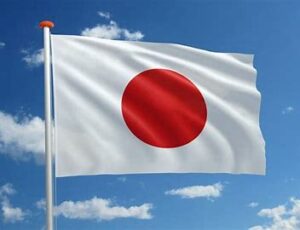
Italy Approves Model for the GloBE Tax Return
On February 6, 2026, the Italian Revenue Agency approved the model for the GloBE tax Return. This is a consolidated form with information on the calculation of top-up tax under the IIR, UTPR and QDMTT.
Under Article 5.5 of the OECD Model Rules, a constituent entity can make an annual election for a de minimis exclusion to apply so that there is no top-up tax for a fiscal year if:
• the average Pillar Two GloBE revenue of the jurisdiction for the current and the two preceding fiscal years is less than EUR 10 million; and
• the average net Pillar Two GloBE income or loss of the jurisdiction for the current and the two preceding fiscal years is a loss or is less than EUR 1 million.
In order for the de minimis rule to apply, all constituent entities in the jurisdiction are required to meet the requirements.
Where the de minimis exclusion applies, the MNE is not required to calculate adjusted covered taxes, the Pillar Two ETR or top-up tax for the jurisdiction.
Both the average Pillar Two GloBE income and revenue requirements are based on the same rules used to calculate the jurisdictional Pillar Two GloBE income.
Note that although the de minimis exclusion is calculated on a jurisdictional basis, minority-owned sub-groups are included for this purpose (unlike for standard jurisdictional blending purposes). Therefore, the average revenue and income of minority-owned subgroups are included. For more information on minority-owned subgroups, see Minority-Owned Entities
Under Article 5.5.2 of the OECD Model Rules, the de minimis exclusion is based on a three-year average for revenue and income, however, a year is excluded for the averaging calculation if:
• There are no constituent entities with a Pillar Two GloBE income or loss in the jurisdiction;
• There are no constituent entities in the jurisdiction; or
• The only constituent entities in the jurisdiction are dormant
If the fiscal years for the averaging calculation are different with some longer or shorter, a pro-rata calculation is made.
The first of the threshold tests for the de minimis exclusion uses Pillar Two GloBE revenue. This is not the same as Pillar Two GloBE income which is used for calculating the Pillar Two GloBE ETR.
Pillar Two GloBE revenue is defined in Article 10 of the OECD Model Rules, and is initially taken from the revenue for a constituent entity in preparing the consolidated financial accounts. As the de minimis exclusion is a jurisdictional election, the revenue of all constituent entities in the jurisdiction is added together (unless specifically excluded).
The financial accounting revenue figure is then adjusted for Pillar Two GloBE purposes based on adjustments that are used to calculate Pillar Two GloBE income. Not all of these adjustments would affect revenue as some would impact on the deductibility of expenses.
Key Pillar Two GloBE income adjustments that would impact on Pillar Two GloBE revenue for the purposes of the de minimis exclusion include:
• Income and gains excluded under the OECD’s version of a participation exemption (eg excluded dividends, capital gains)
• Excluded equity gains or losses
• Revaluation gains or losses
• Differences in exchange rate conversions between tax and accounting currencies
• Prior period changes
• The arms-length requirement for transactions between constituent entities in different jurisdictions
• Refundable tax credits where they are reflected in the current tax expense in the financial accounts
• Elections to exclude gains or losses from fair value accounting
• Elections to apply consolidated accounting treatment to constituent entities in the same jurisdiction
• Exclusions for international shipping and ancillary income
• Revenue allocated to a permanent establishment which is deducted from revenue of the main entity
• Tax transparent entities where income is allocated to members
If there is a requirement to recalculate the ETR for a previous year, this may (depending on the nature of the adjustment) impact on Pillar Two GloBE revenue or income for the previous year.
If a subsequent adjustment reduces Pillar Two GloBE revenue or income for a previous fiscal year below the relevant monetary threshold for the de minimis exclusion, this does not entitle the MNE to the de minimis exclusion.
However, if there is an increase in Pillar Two GloBE revenue or income for a previous fiscal year such that the de minimis thresholds are not met, there is a requirement to calculate the Pillar Two GloBE ETR and top-up tax for that relevant year.
The de minimis exclusion does not apply to stateless or investment constituent entities. As such their revenue and income are not included in the threshold tests for determining if the de minimis exclusion applies.
Under Article 5.5 of the OECD Model Rules, a constituent entity can make an annual election for a de minimis exclusion to apply so that there is no top-up tax for a fiscal year if:
• the average Pillar Two GloBE revenue of the jurisdiction for the current and the two preceding fiscal years is less than EUR 10 million; and
• the average net Pillar Two GloBE income or loss of the jurisdiction for the current and the two preceding fiscal years is a loss or is less than EUR 1 million.
Pillar Two GloBE revenue is defined in Article 10 of the OECD Model Rules, and is initially taken from the revenue for a constituent entity in preparing the consolidated financial accounts. As the de minimis exclusion is a jurisdictional election, the revenue of all constituent entities in the jurisdiction is added together (unless specifically excluded).

On February 6, 2026, the Italian Revenue Agency approved the model for the GloBE tax Return. This is a consolidated form with information on the calculation of top-up tax under the IIR, UTPR and QDMTT.

On January 29, 2026, Canada’s Department of Finance released draft GMTA technical amendments introducing an elective private investment entity de-consolidation rule for Pillar Two/GMTA purposes.

On January 30, 2026, Japan’s National Tax Agency issued a law implementation circular clarifying certain aspects of its UTPR and QDMTT.

In January 2026, Canada issued the filing procedures for the GIR, GMT Return and the Double Filing Relief Notification.

On January 19, 2026, South Korea issued a Draft Law to amend the Enforcement Decree to the International Tax Adjustment Act. This provides for detailed provisions for the application of the QDMTT and will also extend the Transitional CbCR Safe Harbour by 1 year (as provided in the January 2026 OECD Side-by-Side Package).

On January 19, 2026, the Hong Kong Inland Revenue Department opened its E-filing portal for the submission of Top-Up Tax Notifications

On December 31, 2025, Israel enacted Law No. Law 5776-2025 on the Minimum Corporate Tax for Multinational Groups. The enacted law contains some significant changes from the previous draft law.

On December 29, 2025, Uruguay’s President issued Decree No. 325/025, to provide for exemptions from the QDMTT for entities covered by a tax stability agreement. Note that Law N° 20446 to enact the QDMTT was published in the Official Gazette on January 8, 2026.

On December 23, 2025, Korea enacted Law number 21215 to implement the 2026 Tax Reform. This includes a QDMTT from January 1, 2026.
| Cookie | Duration | Description |
|---|---|---|
| cookielawinfo-checkbox-analytics | 11 months | This cookie is set by GDPR Cookie Consent plugin. The cookie is used to store the user consent for the cookies in the category "Analytics". |
| cookielawinfo-checkbox-functional | 11 months | The cookie is set by GDPR cookie consent to record the user consent for the cookies in the category "Functional". |
| cookielawinfo-checkbox-necessary | 11 months | This cookie is set by GDPR Cookie Consent plugin. The cookies is used to store the user consent for the cookies in the category "Necessary". |
| cookielawinfo-checkbox-others | 11 months | This cookie is set by GDPR Cookie Consent plugin. The cookie is used to store the user consent for the cookies in the category "Other. |
| cookielawinfo-checkbox-performance | 11 months | This cookie is set by GDPR Cookie Consent plugin. The cookie is used to store the user consent for the cookies in the category "Performance". |
| viewed_cookie_policy | 11 months | The cookie is set by the GDPR Cookie Consent plugin and is used to store whether or not user has consented to the use of cookies. It does not store any personal data. |